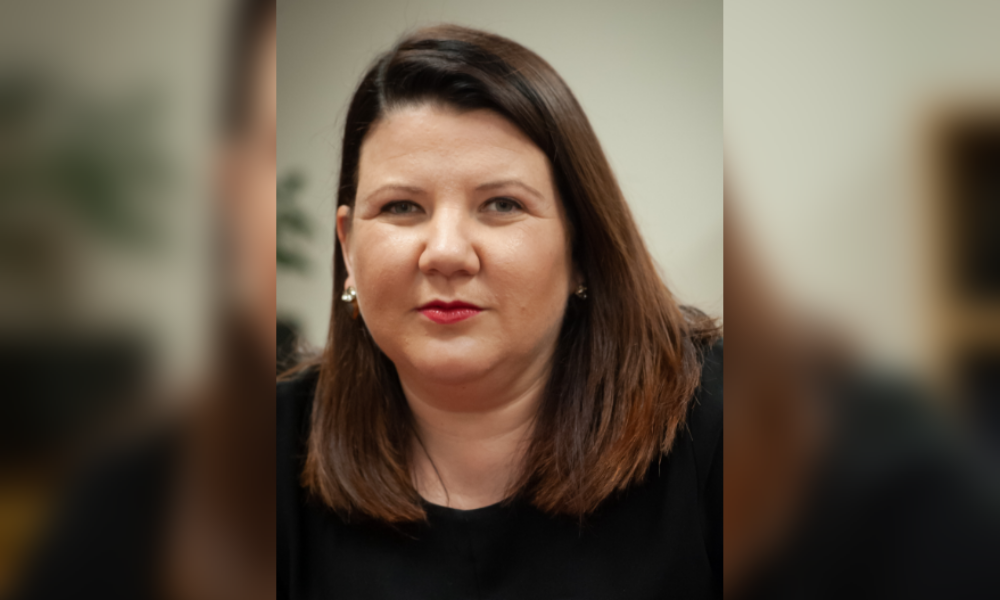
Brigitte Morten also believes that the walls between law and other industries must be broken down

Politics has long been something Brigitte Morten is passionate about – it was the field that led her to the study of the law, and it is a field that continues to inform her approach as a lawyer.
As a public law specialist, Morten has tackled matters involving free speech, resource management and infrastructure, among others, on behalf of clients who are “on the frontlines of dealing with government reform.” Lawyers, she says, have a responsibility to advocate to protect the integrity of the democratic system through maintaining the rule of law.
In this interview, the Franks Ogilvie principal and company director talks the importance of breaking down the walls between the law and the sectors clients operate in, the impact of even the smallest changes to government policies on people’s lives and constantly learning something new about public law.
What made you choose a career in law, and what's your favourite part of the job?
I initially choose to study law to underpin my understanding of politics – I actually never intended to go beyond first year. However, I found the study of law interesting and challenging, and decided to complete the degree. I took a problem-solving approach complimented by political science and public policy studies into the workforce.
Specialising in public law allows you access to a wide range of clients. Many people think they can ignore what is happening in Parliament, but government and its decisions affect everyone. I really enjoy helping people navigate this complex space and deliver outcomes that make their lives better.
What is the most memorable case you've taken on/been involved in?
A matter related to The Council of Licensed Firearm Owners (COLFO) is one of the most complex and interesting matters I have been involved in. COLFO is a volunteer-led organisation that was thrust into the limelight as the government sped through extensive firearms reforms.
We supported them in litigation, submissions on legislation, engagement with their large supporter base and reacting to almost daily media issues and announcements. This meant we could not advise in just one area but had to help them navigate the complexity of decisions they needed to make.
What is going on at the firm? Are there any new programs and initiatives that you’re particularly interested in?
In public law, our clients are on the frontlines of dealing with government reform, so we are continually learning about new areas. The rare opportunity of a majority government under MMP means that we are seeing a speed of initiatives that is usually unheard of. Just recently, I dealt with issues across free speech, micro-mobility, resource management, infrastructure and manufacturing standards.
What has been your proudest accomplishment in the last year or so? Or what’s the biggest lesson you learned in the past year and what advice can you give fellow lawyers about it?
The key thing I have learnt is the importance of understanding the pressures on clients and the outcomes they are seeking. Often clients present with a problem or question, and it is easy to just focus on solving this. But it is important to dig deeper and find out what success looks like to them. That means you are on the same page from day one about what needs to be achieved.
What should the profession and law firms focus more on?
We should be focusing more on breaking down the walls between law and other industries. Traditionally, legal firms were able to operate as advisors only – interacting only when matters of law were raised. However, most clients now need you to work alongside them and expect you to understand more than just the law. Rarely are our clients individuals – more likely, we are advising boards, industry groups and sometimes thousands of members. I believe we deliver the best results if we spend a bit more time understanding how their industry works before diving in to answer their questions.
What are the challenges you expect in your practice, and in the business of law in general, going forward? What challenges are particularly pressing in the country’s legal industry?
In the public law sphere, it is challenging to make sure that people get to have a voice in the changes that will affect them and their families. We often take democracy and the responsibilities that come with it for granted. But if we don’t fight to maintain the rule of law, we put at risk the integrity of our system. There is an enormous difference between consultation that ticks a box, and consultation that delivers better outcomes. As lawyers we have a responsibility to advocate to protect our system.
What are you looking forward to the most in the coming year?
Even after spending over a decade working in politics and law, I continue to be surprised about the impact that even minute changes to government policy can have on individuals’ lives. Often, well-intended public officials don’t understand how their decisions will actually impact on the ground. And the enormity and perception of government means most people don’t think they can advocate for change. I am most looking forward to continuing to learn about these decisions and working with people to change these decisions.